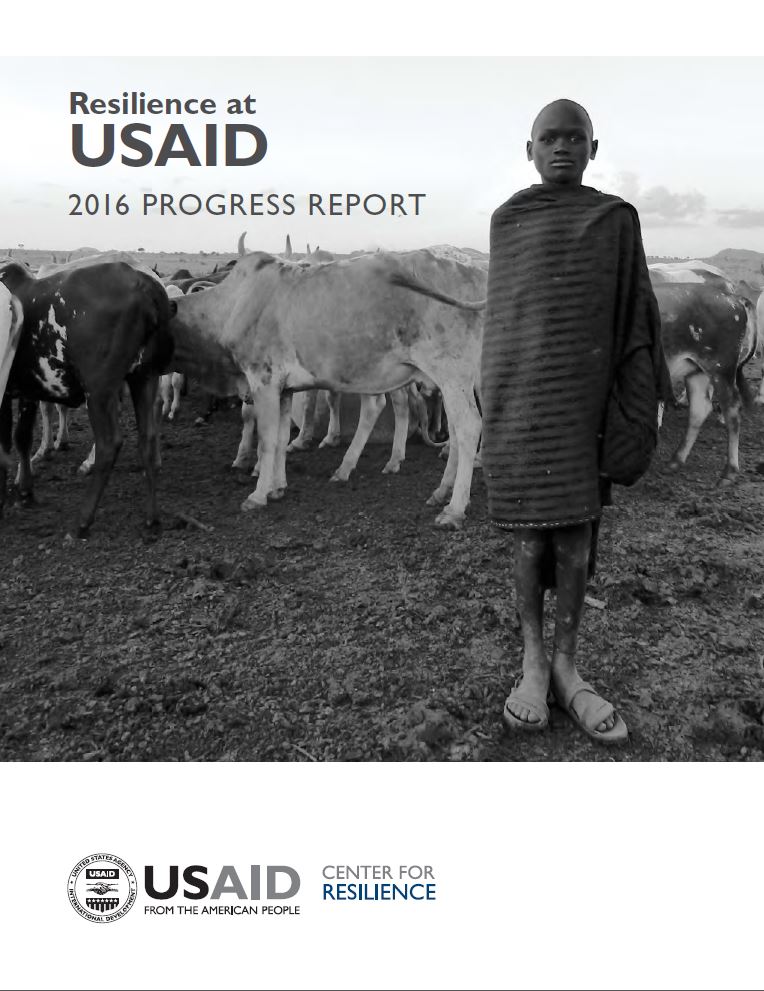Speeches Shim
The Resilience at USAID 2016 Progress Report, produced by the USAID Center for Resilience, chronicles progress made since the large-scale drought emergencies in the Horn of Africa and Sahel in 2011–2012 that gave rise to whole-of-agency resilience-building efforts at USAID and the 2012 Policy and Programming Guidance on Building Resilience to Recurrent Crises.
The report covers the expansion of programs and investment in Africa and Asia in support of country-led efforts and regional institutions, the launch of the Global Resilience Partnership, the advancement of thinking and practice on risk and resilience measurement, consolidation of learning from our eight case ‘proof of concept’ resilience portfolio in Ethiopia, Kenya, Uganda, Somalia, Niger, Burkina Faso, Mali and Nepal, and establishment of a cross-agency Resilience Leadership Council to guide and grow these efforts. The report also highlights the establishment of the Center for Resilience and the position of Agency Resilience Coordinator to provide thought leadership and strategic and technical guidance on resilience to these and a growing number of other countries and missions.
The 2016 Resilience at USAID progress report describes how the growing intensity and complexity of risk from climate change and variability to price shocks, health crises, political instability and outright conflict only serves to reinforce the importance of resilience-building efforts, as does the global impact of el Niño in 2015–16. Both also underscore the broader relevance of resilience to Agency priorities such as ending extreme poverty, improving food security, and achieving the ambitious aims outlined in the Sustainable Development Goals. The early results of these efforts and investment in resilience are compelling, speak to the importance and effectiveness of building resilience, and set the stage for the future of resilience-building at USAID.


Comment
Make a general inquiry or suggest an improvement.